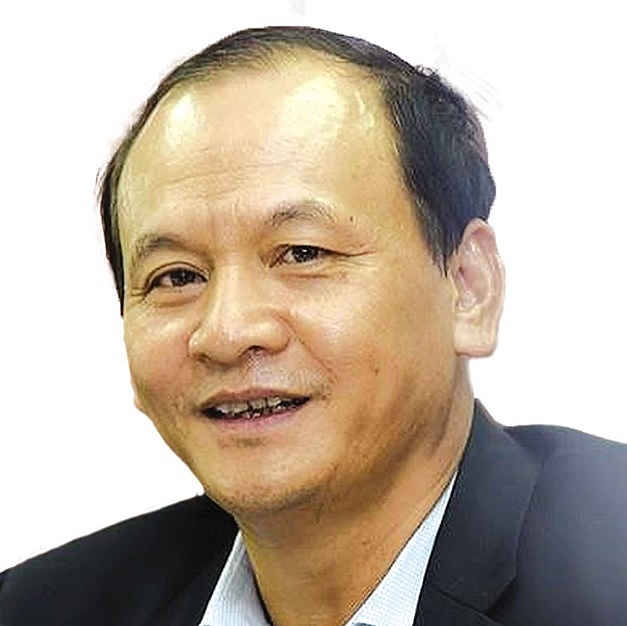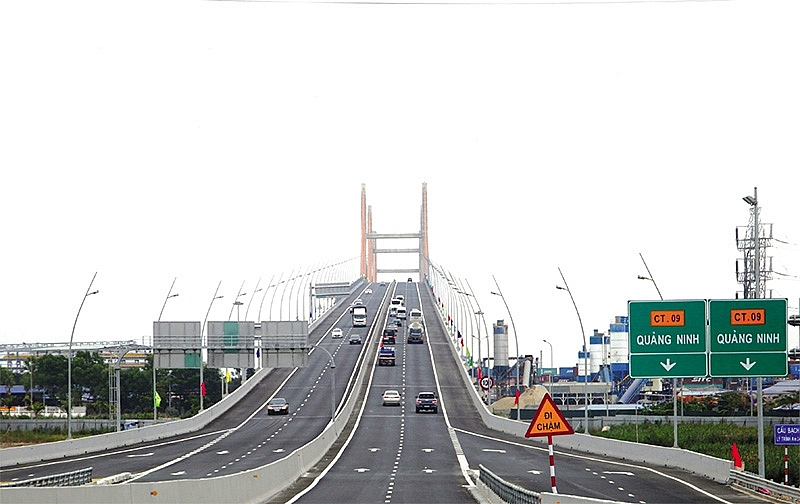Equal opportunities for PPP project contenders
 |
| Nguyen Nhat |
A number of private domestic and international investors have showed their strong interest in the eastern cluster of the North-South Expressway project. What are the opportunities for them?
With a total length of 654 kilometres, the eastern cluster of the North-South Expressway costing VND118.7 trillion ($5.16 billion) covers 11 sections, including three state-funded ones and eight others to be developed under the public-private partnership (PPP) model. It connects Hanoi and Ho Chi Minh City with four key economic hubs, economic zones, industrial zones, border gates, and international seaports. The state is contributing around VND55 trillion ($2.39 billion), and the rest is expected to come from private investors.
As regulated by the Law on Public Procurement, the selection of investors to join this venture will be carried out by international bidding in the two stages of shortlisting and tender. Now, the bidding document is available to all domestic and foreign investors.
As planned, the bidding process is being carried out from April this year to June next year. At most, five capable investors will win a ticket to the tender, and domestic and international investors have equal opportunities in this.
What are the feasibility and bankability of the eight PPP sections in the context that a number of regulatory barriers remain unsolved?
When carrying out the project prefeasibility study, the government submitted to the National Assembly Document No.487/TTr-CP dated October 2017 reporting about the investment plan. In this document, the government admitted that it is difficult to affirm the success of the bidding to select foreign investors. This is because of several reasons including Vietnam’s credit rating remaining relatively low, and the current situation of high public debt ceiling making it impossible for the government to offer the guarantee mechanism as expected such as minimum revenue, foreign currency exchange, and exchange rate.
Specifically, PPP projects often have a longer contract duration of up to 20 years. In case of offering the government a guarantee mechanism, the guarantee duration must be as long as the contract life. Meanwhile, as regulated in the Law on Public Investment, the mid-term investment duration is just five years.
Lessons from the Dau Giay-Phan Thiet and Tan Van-Nhon Trach PPP projects, as well as those in other regional countries, proved that without the government guarantee, Vietnam can struggle to lure in international investors and funders to join PPP transport projects in the country.
All the regulatory barriers related to the government guarantee are expected to be dealt with when the Law on Public-Private Partnership is approved by the National Assembly. At present, the Ministry of Planning and Investment is working on the draft of the new law and is set to submit it to the National Assembly for approval in October.
 |
| Upcoming regulation changes are opening up more opportunities for the private sector in infrastructure projects |
In the interim, what are the possible solutions to raise the attractiveness of this important project to private domestic and international investors?
Unlike other PPP transport projects carried out in the past, there are some advantages and supporting policies for investors who join the development of the eight sections. For site clearance, the country takes responsible for site clearance for the project and commits to hand over cleared land to investors who join the eight PPP sections.
Another new issue offered to the project is investors are encouraged to apply new environmentally-friendly technology solutions during construction. The change in technical solutions and technology application are decided by investors to reduce construction costs to gain profit and increase operational efficiency. And the state only manages the output of the project.
In terms of investor equity, according to the estimation of the project feasibility study report and bidding document, it is 20 per cent of total investment capital, while the service price at the starting period is VND1,500 ($0.065) per passenger car unit per kilometre, before increasing to VND3,400 ($0.147). Furthermore the state counter-funding for the project, which is among the concerns of foreign investors, is ensured.
What the stars mean:
★ Poor ★ ★ Promising ★★★ Good ★★★★ Very good ★★★★★ Exceptional
 Tag:
Tag:
Related Contents
Latest News
More News
- Hermes joins Long Thanh cargo terminal development (February 04, 2026 | 15:59)
- SCG enhances production and distribution in Vietnam (February 04, 2026 | 08:00)
- UNIVACCO strengthens Asia expansion with Vietnam facility (February 03, 2026 | 08:00)
- Cai Mep Ha Port project wins approval with $1.95bn investment (February 02, 2026 | 16:17)
- Repositioning Vietnam in Asia’s manufacturing race (February 02, 2026 | 16:00)
- Manufacturing growth remains solid in early 2026 (February 02, 2026 | 15:28)
- Navigating venture capital trends across the continent (February 02, 2026 | 14:00)
- Motivations to achieve high growth (February 02, 2026 | 11:00)
- Capacity and regulations among British areas of expertise in IFCs (February 02, 2026 | 09:09)
- Transition underway in German investment across Vietnam (February 02, 2026 | 08:00)






















 Mobile Version
Mobile Version